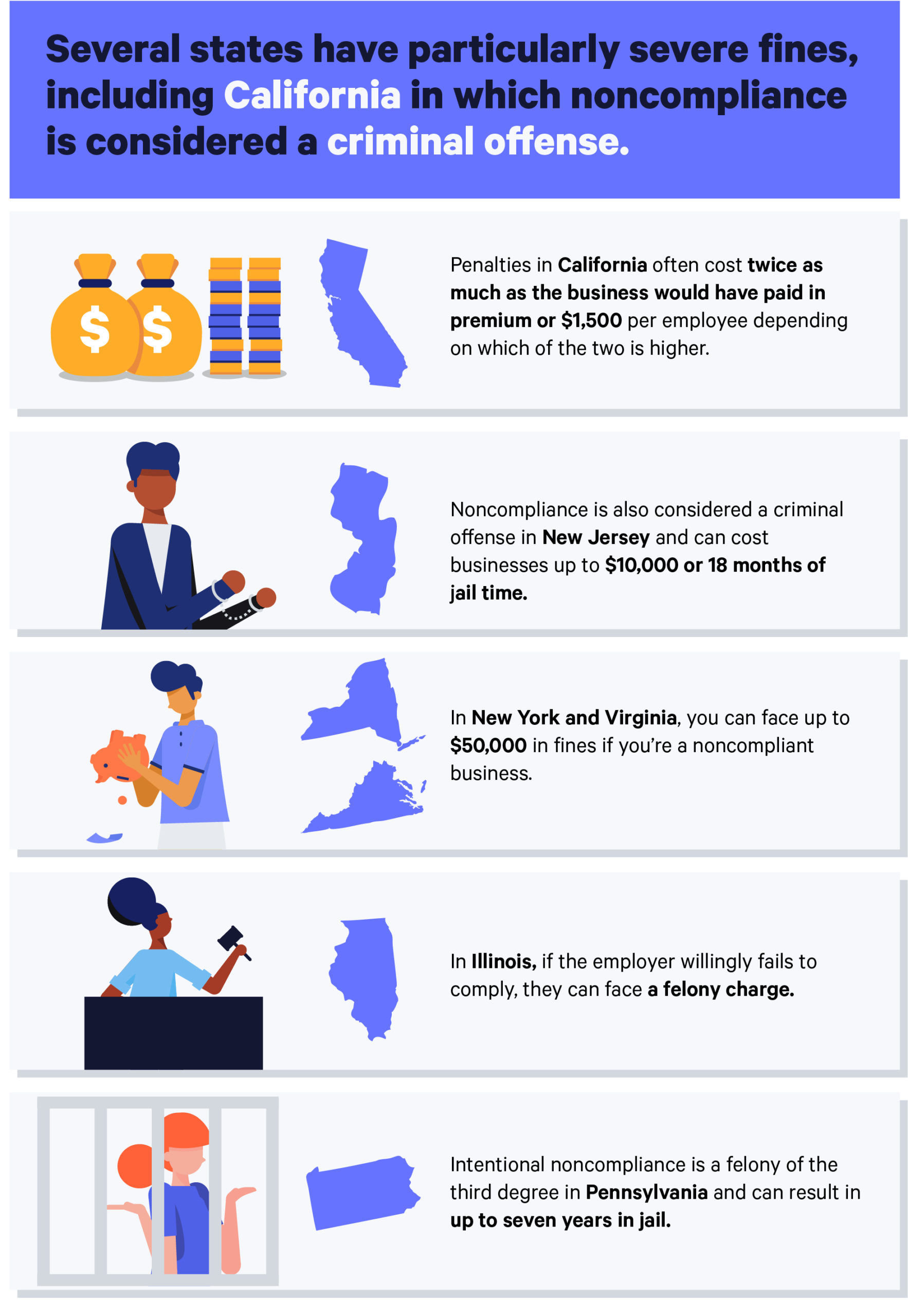Foster parents in Indiana are paid an average of $577 to $904 per month based on the child’s age and needs. Foster parents in Indiana receive a monthly reimbursement to cover the cost of caring for a child in their home, including expenses like food, clothing, and basic necessities.
This reimbursement is designed to support foster parents in meeting the needs of the child in their care. In addition to the monthly reimbursement, foster parents may also be eligible for other financial assistance like health insurance coverage for the child.
Being a foster parent can be a rewarding experience, helping to provide stability and love to children in need.

Credit: www.onetrust.com
Overview Of Foster Parent Payments
Foster parenting is a rewarding experience that allows you to provide a safe and nurturing environment for children in need. As a foster parent in Indiana, it is essential to understand the financial aspect of this commitment. Foster parent payments are a crucial part of the foster care system, aiming to support and compensate foster parents for their dedication and efforts.
What Are Foster Parent Payments?
Foster parent payments, also known as foster care rates or reimbursements, are monetary allowances provided to foster parents by the Indiana Department of Child Services (DCS) to cover the costs associated with caring for a child in foster care. These payments are intended to help foster parents meet the basic needs of the child and ensure their well-being. The amount of payment varies based on several factors, including the child’s needs, age, and the level of care required.
Importance Of Foster Parent Payments
The significance of foster parent payments cannot be overstated. These payments play a vital role in supporting foster families and enabling them to provide a nurturing and stable environment for the children in their care. By covering various expenses such as food, clothing, transportation, and medical costs, foster parent payments help alleviate financial burdens and allow foster parents to focus on providing the best possible care for the child.
Furthermore, foster parent payments acknowledge the immense commitment and dedication of foster parents. It recognizes the challenges they face and compensates them for their time, energy, and resources that go into fostering a child. By ensuring that foster parents receive fair and adequate payment, the system aims to encourage more individuals and families to consider becoming foster parents and contribute to the well-being of at-risk children.
Factors Influencing Foster Parent Payments
The amount of foster parent payments is influenced by various factors. These factors ensure that the payments are tailored to meet the specific needs of each child and contribute to providing a suitable foster care environment.
Some of the factors influencing foster parent payments in Indiana include:
- The age of the child: Younger children may require additional resources, such as diapers and formula.
- The level of care required: Children with special medical or behavioral needs may require a higher level of care, leading to increased reimbursements.
- The number of children in care: Foster parents who care for multiple children may receive higher payments to account for the increased responsibilities and expenses.
The determination of foster parent payments is based on a standardized state rate, which is periodically adjusted to ensure compliance with state regulations and to reflect the current cost of living. The Indiana DCS plays a crucial role in evaluating and determining the appropriate payment amounts, ensuring that foster parents receive fair compensation in accordance with their efforts and obligations.

Credit: www.embroker.com
Understanding Foster Parent Payments In Indiana
Becoming a foster parent is a rewarding experience that not only allows you to make a meaningful impact on a child’s life but also provides you with financial support. In Indiana, foster parents receive payments to assist with the care and well-being of the children placed in their homes. Understanding the guidelines, types of payments, and qualifications for receiving these payments is essential for anyone considering becoming a foster parent in Indiana.
State Guidelines For Foster Parent Payments In Indiana
In Indiana, foster parent payments are determined based on state guidelines. These guidelines ensure that foster parents receive a fair and reasonable amount to cover the costs associated with caring for a child. The Indiana Department of Child Services (DCS) sets these guidelines to ensure the welfare of both the children and the foster parents.
Types Of Foster Care Payments In Indiana
There are various types of foster care payments available to foster parents in Indiana. These payments are designed to assist with the different aspects of fostering a child, including their basic needs, medical care, and additional expenses. The following are some of the key types of payments that foster parents may receive:
- Basic Maintenance Payment: This payment covers the costs of food, clothing, shelter, and other essential needs of the child placed in your care.
- Specialized Maintenance Payment: In certain circumstances, such as when caring for a child with special needs, foster parents may receive additional financial assistance to cater to the specific requirements of the child.
- Medical and Dental Payment: Foster parents are also eligible to receive payments to cover the medical and dental expenses of the child. This ensures that the child receives adequate healthcare during their time in foster care.
- Therapeutic Maintenance Payment: For children with emotional or behavioral challenges, foster parents may receive an additional stipend to help cover the costs of therapy or counseling services.
- Training Payments: Foster parents are often provided with training opportunities to enhance their skills and knowledge in caring for children with specific needs. These trainings are typically compensated with a training payment.
Qualifications For Receiving Foster Parent Payments In Indiana
To qualify for foster parent payments in Indiana, certain criteria must be met. The primary qualifications include:
- Must be a licensed foster parent in the state of Indiana.
- Must provide a safe and nurturing environment for the child.
- Must comply with all foster care regulations and policies set by the Indiana Department of Child Services.
- Must cooperatively work with the child’s caseworker and other professionals involved in their care.
Meeting these qualifications ensures that foster parents receive the financial support they need to provide quality care for the children in their homes.
Determining Foster Parent Payment Rates In Indiana
Determining foster parent payment rates in Indiana is a crucial topic for those interested in becoming foster parents. Find out how much foster parents get paid in Indiana and gain valuable insights into the payment rates and requirements in this informative article.
Factors Considered In Determining Foster Parent Payment Rates
Determining foster parent payment rates in Indiana takes into account various factors that contribute to the overall level of care and support provided to foster children. These factors help establish a fair and appropriate compensation for foster parents. Several key factors are considered, including the ages and needs of the children placed in the foster home, as well as the foster parent’s level of training and experience. The Indiana Department of Child Services (DCS) assesses the unique circumstances of each foster situation to determine the appropriate payment rates.Level Of Care And Corresponding Payment Rates
The level of care required for foster children can vary greatly, ranging from basic needs to specialized care. In Indiana, foster parent payment rates are categorized based on the level of care provided. The payment rates are determined according to the following levels: 1. Basic Care Level: This includes providing for the child’s daily needs, such as food, clothing, and shelter. Foster parents receive a payment rate that covers these basic expenses. 2. Specialized Care Level: Foster parents who provide specialized care for children with higher needs, such as behavioral or medical conditions, receive a higher payment rate to compensate for the extra support required. 3. Intensive Care Level: Foster parents who care for children with significant medical, behavioral, or emotional needs receive an even higher payment rate. This level of care requires additional training and expertise to meet the unique challenges presented by these children.Additional Payments And Reimbursements Available In Indiana
In addition to the regular foster parent payment rates, Indiana provides additional payments and reimbursements to support foster families in meeting the needs of the children in their care. These additional payments can help cover various costs associated with fostering. Some examples of additional payments and reimbursements available in Indiana include: 1. Clothing Allowance: Foster parents receive a clothing allowance to help cover the cost of purchasing clothing for the foster children in their care. 2. Medical and Dental Coverage: Medicaid coverage is available for foster children, ensuring that their medical and dental needs are adequately addressed. 3. Mileage Reimbursement: Foster parents may be eligible for mileage reimbursement when they transport foster children to appointments or other necessary activities. Foster parents play a vital role in providing a safe and nurturing environment for children in need. The foster parent payment rates in Indiana are designed to compensate foster parents for the care and support they provide to these vulnerable children. By considering factors such as the level of care required and offering additional payments and reimbursements, Indiana aims to attract and support dedicated foster parents who can make a positive difference in the lives of foster children.Complete Guide To Foster Parent Payment Process
Being a foster parent can be a rewarding experience, both emotionally and financially. If you are considering becoming a foster parent in Indiana, it’s essential to understand the payment process and the financial support you can expect. This complete guide will walk you through the application and approval process for foster parent payments, the documentation and reporting requirements, as well as the timing and method of payments.
Application And Approval Process For Foster Parent Payments
To start receiving foster parent payments in Indiana, you must complete a thorough application and approval process. Here are the steps involved:
- Contact your local Division of Family Resources (DFR) office or a licensed child-placing agency to express your interest in becoming a foster parent.
- Attend an initial orientation session to learn more about the requirements, responsibilities, and expectations of foster parenting.
- Complete an application form, providing detailed information about your background, home environment, and personal references.
- Undergo a background check, including criminal history and child abuse registry checks, to ensure the safety and well-being of the children in your care.
- Participate in a home study conducted by a DFR caseworker or licensed child-placing agency representative. This study helps determine your suitability as a foster parent and assesses your home and support network.
- Complete any required training and education programs that prepare you for the challenges and responsibilities of fostering.
- After a successful completion of the application and approval process, you will be eligible to receive foster parent payments.
Documentation And Reporting Requirements For Foster Parent Payments
As a foster parent in Indiana, you will need to fulfill certain documentation and reporting requirements to ensure the proper administration of foster parent payments. Here’s what you need to know:
- Keep accurate records of the children in your care, including their names, dates of placement, and dates of departure. This information helps the DFR determine the appropriate payment rates.
- Maintain records of expenses related to the care of the foster children, such as clothing, school supplies, and medical expenses. These records will assist in the reimbursement process.
- Report any changes in your personal circumstances or the circumstances of the foster children, such as changes in income or living arrangements, to the DFR or licensed child-placing agency promptly.
- Ensure all required documentation, such as proof of residency, citizenship, and social security numbers, are up to date and provided to the relevant authorities.
Timing And Method Of Foster Parent Payments
Foster parent payments in Indiana are typically distributed to caregivers on a monthly basis. The payment amounts vary depending on the needs of the individual children in care and the level of care provided. Here are important details regarding timing and method of payment:
| Payment Timing | Method of Payment |
|---|---|
| Payments are usually issued on or around the 5th of each month. | Payments are often made through direct deposit into your designated bank account. |
| In case of a delay or discrepancy in payment, contact your assigned caseworker or the designated payment office for assistance. | Ensure that you have provided accurate and up-to-date banking information for smooth payment disbursement. |
Becoming a foster parent is a significant commitment, and the financial support provided through foster parent payments can help offset the costs of caring for the children in your home. By understanding the complete guide to the foster parent payment process in Indiana, you’ll be better prepared to embark on this rewarding journey.
Additional Support For Foster Parents In Indiana
Foster parenting is a noble and rewarding commitment that provides stability and care to children in need. While foster parents open their hearts and homes, it is essential to highlight the additional support that Indiana offers to ensure foster parents’ success and well-being. From training and resources to support services and financial assistance programs, Indiana strives to provide foster parents with the necessary tools and guidance.
Training And Resources Available For Foster Parents
Becoming a foster parent in Indiana involves comprehensive training programs that equip individuals and families with the knowledge and skills required for successful caregiving. The Department of Child Services (DCS) provides a range of training opportunities that cover topics such as trauma-informed care, behavioral management, and cultural sensitivity. These programs are designed to prepare foster parents for the unique challenges they may encounter, helping them provide the best care possible.
Foster parents also have access to a wealth of resources in Indiana. Supportive materials, such as books, articles, and online resources, offer valuable guidance on parenting techniques, child development, and therapeutic approaches. Additionally, support groups and mentoring programs connect foster parents with experienced individuals who can offer advice and share their own experiences. By nurturing a supportive network, Indiana ensures that foster parents feel empowered and prepared to handle any situation.
Support Services And Benefits For Foster Parents
Recognizing the critical role foster parents play in the lives of children, Indiana provides various support services and benefits. Foster parents receive ongoing support from caseworkers who work closely with them to ensure the children’s well-being and proper placement. These caseworkers offer guidance, answer questions, and provide reassurance, serving as a vital resource for foster parents.
Furthermore, foster families in Indiana are eligible for financial support to assist in covering the costs of caring for the children placed in their homes. This may include a monthly stipend to support the child’s basic needs, such as food, clothing, and personal hygiene products. In certain cases, additional allowances may be provided to cover expenses related to education, extracurricular activities, and medical requirements. By relieving some of the financial burdens, Indiana acknowledges the sacrifices foster parents make and ensures that they can provide a stable and nurturing environment for the children.
Tax Implications And Financial Assistance Programs For Foster Parents
When it comes to tax implications, foster parents in Indiana receive certain benefits. Under the federal tax code, foster parents can claim the children they foster as dependents on their tax returns, which may result in significant tax savings. Additionally, foster parents may be eligible for tax credits, such as the Child and Dependent Care Credit, which can further reduce their tax liability.
Indiana also offers financial assistance programs specifically designed to support foster parents. These programs include adoption assistance, kinship care funds, and grants to help cover education-related expenses. By providing financial resources, Indiana acknowledges the financial challenges foster parents may face and aims to alleviate some of the burdens associated with raising children in foster care.
In conclusion, Indiana recognizes the invaluable contributions of foster parents and offers a comprehensive array of support services, training programs, and financial assistance. By prioritizing the well-being of foster parents, Indiana ensures that families are equipped and empowered to provide the loving and stable environments that children in foster care desperately need.
Understanding The Financial Impact Of Foster Parenting
Foster parenting is not just an emotional and rewarding experience, but it also has a significant financial impact. It’s important to understand how the financial aspects of foster parenting work, including the potential income, budgeting tips, and non-financial benefits. By understanding these factors, you can better prepare yourself for the financial responsibilities that come with foster parenting.
Calculating The Potential Income From Foster Parent Payments
Foster parents in Indiana receive financial support to cover the basic needs of the children in their care. These payments are intended to assist with expenses such as food, clothing, education, healthcare, and other essentials. It’s important to note that the amount of payment varies depending on factors such as the child’s age, special needs, and the level of care required. The Indiana Department of Child Services (DCS) determines the specific payment rates. To calculate the potential income from foster parent payments, you need to consider the number of children you plan to foster and the level of care they require. It’s crucial to have an understanding of Indiana’s foster care payment structure so that you can plan your finances accordingly.
Budgeting Tips And Financial Planning For Foster Parents
Budgeting plays a crucial role in managing the financial aspect of foster parenting. Here are some helpful tips to ensure your financial stability and provide the best care for the children in your care:
- Create a comprehensive budget plan that includes all your expenses, from household bills to the children’s needs.
- Track your spending to identify areas where adjustments can be made.
- Consider setting aside a portion of the foster parent payments for unexpected expenses or emergencies.
- Maximize your resources by seeking out community programs, grants, and other available resources that can help offset costs.
- Take advantage of tax benefits and deductions available to foster parents.
By implementing these budgeting tips and financial planning strategies, you can ensure that you are financially prepared and provide a stable environment for the children in your care.
Considering The Non-financial Benefits Of Foster Parenting
While the financial impact is an important aspect to consider, it’s equally essential to recognize the non-financial benefits of foster parenting. Foster parenting can provide a sense of purpose, fulfillment, and the opportunity to make a positive impact on a child’s life. By giving a child a loving and supportive home, you can help them grow, develop, and overcome challenges. The emotional rewards that come from fostering a child can be far more valuable than the financial compensation alone. It’s crucial to weigh both the financial and non-financial benefits when considering becoming a foster parent.

Credit: schoolchoiceweek.com
Frequently Asked Questions On How Much Do Foster Parents Get Paid In Indiana
How Much Do Foster Parents Get Paid In Indiana Per Month?
Foster parents in Indiana receive a monthly payment, the exact amount depending on the child’s needs. The average ranges from $400 to $600, with additional compensation for specialized care.
What Are The Benefits Of Being A Foster Parent In Indiana?
By becoming a foster parent in Indiana, you can provide a loving home for children in need. It allows you to make a positive impact on their lives, helping them grow and develop. Foster parenting also offers the opportunity to learn and gain new parenting skills while receiving support from the state.
How Long Does It Take To Become A Foster Parent In Indiana?
Becoming a foster parent in Indiana typically takes around 3-6 months.
What State Pays The Most For Foster Care?
California pays the most for foster care.
How Much Do Foster Parents Get Paid In Indiana, And What Are The Factors That Determine Their Payment?
Foster parents in Indiana receive monthly payments based on several factors, including the child’s age, special needs, and the foster parent’s level of certification.
Conclusion
Being a foster parent in Indiana comes with financial support to cover the basic needs of the child. The state provides reimbursement rates to help offset the costs of caring for a foster child. The amount paid varies based on the child’s age and needs.
By becoming a foster parent, you not only provide a loving and stable home but also receive financial assistance to support the child’s well-being. Start making a difference today and consider becoming a foster parent in Indiana.

